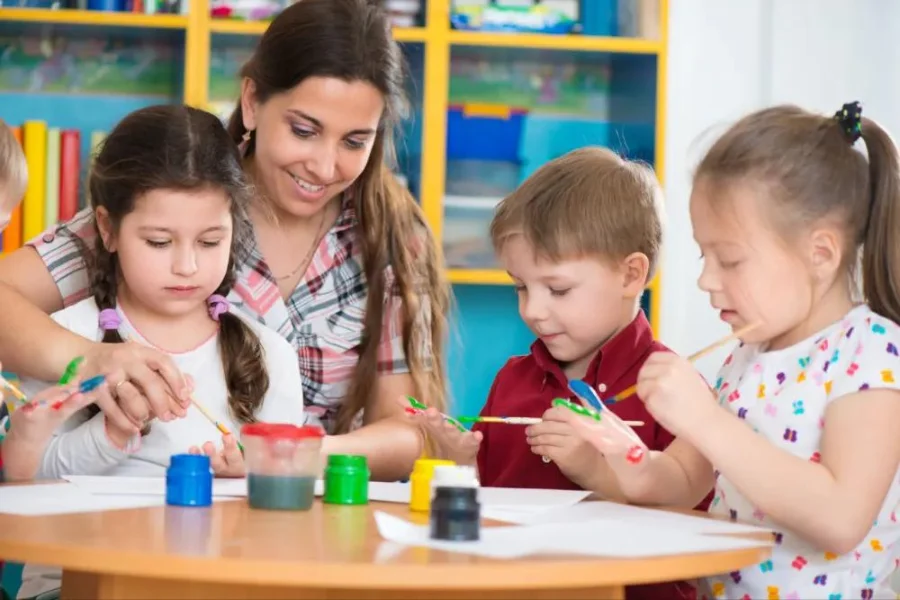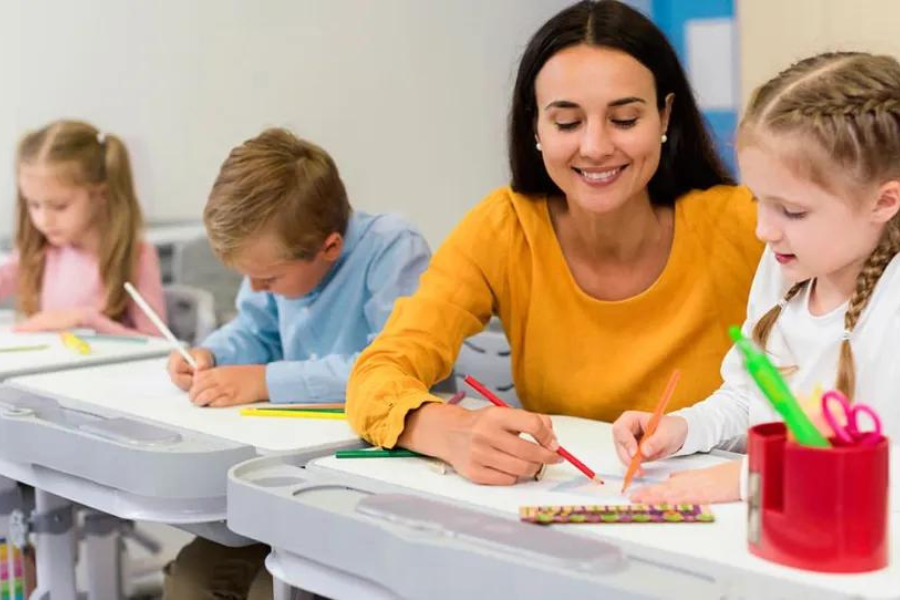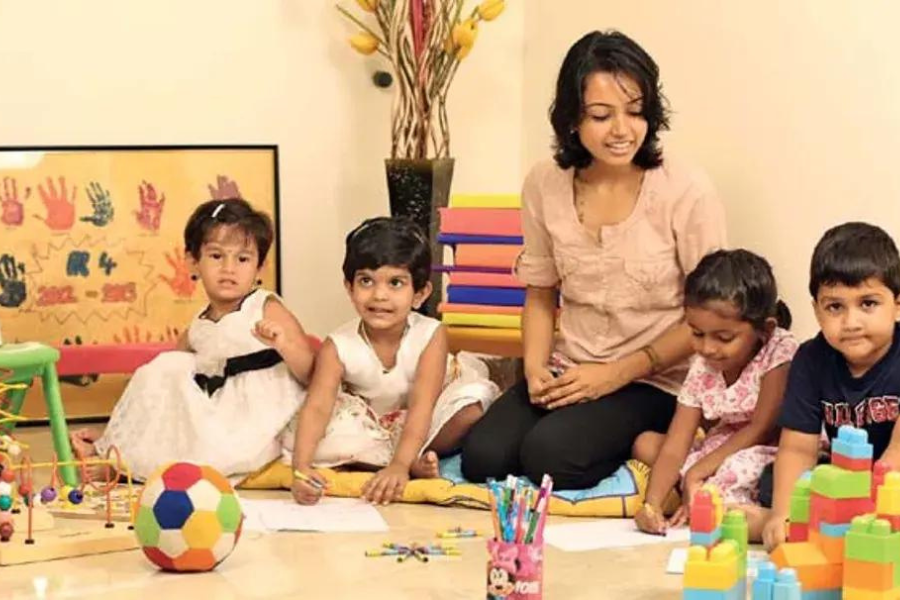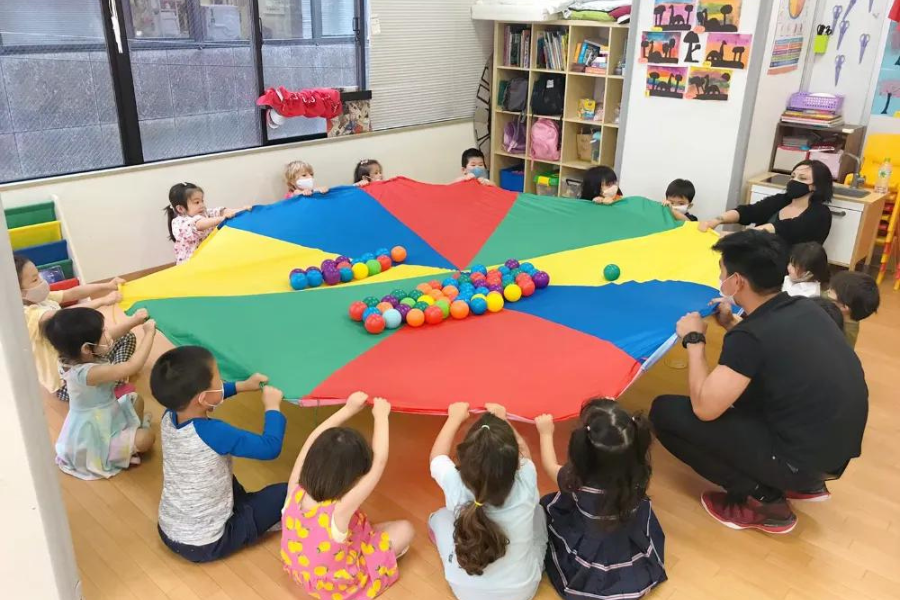How to Handle Playgroup Students?

Source: millhopper
How to Handle Playgroup Students?
Handling playgroup students is an art that requires a blend of patience, creativity, and specific strategies. is one of the important and interesting topics for aspiring teachers or educators. The perfect blend of skills and expertise gained from preschool teaching courses and passion for working in preschool will help to Understand “how to handle playgroup students”
Playgroup Teacher Training Course from VIDHYANIDHI EDUCATION SOCIETY-VES a government-registered institution that equips trainees with all the knowledge required to handle playgroup students effortlessly.
VES aims to provide various insights into the necessary tools incorporated to handle playgroup students effectively.
Contact us through Call or leave a message @ +919869546913 / +919869866277. For admissions in pre-primary courses.
Or download the brochure, from Click Here.
Table of Content
- Establish a Routine
- Use Visual Aids
- Positive Reinforcement
- Interactive Learning
- Sensory Play
- Storytelling and Role Play
- Music and Movement
- Small Group Activities
- Safe and Organized Environment
- Patience and Understanding
- Frequent Communication with Parents
- Limit Choices
- Encourage Independence
- Observation and Adaptation
- Conflict Resolution Skills
- Playgroup Teacher Training Course

Source: kidsonthecost
Establish a Routine
Establish a routine that includes various fun activities such as circle playtime, daily reading activities, and grammar activities for senior students, even an engaging story-time will help children to be focused and interested in the class activities.
Use Visual Aids
Playgroup students, still developing language skills, benefit significantly from visual learning. Use visual aids, real-life objects, picture cards, charts, and more tools can enhance the understanding of a child because things that are seen with eyes tend to have more impact on the brain and can be remembered easily.
Positive Reinforcement
Positive reinforcement includes acknowledging and appreciating the constructive actions of a student in the class. Teachers rewarding children with stickers or stars will create a sense of interest and confidence.
Interactive Learning
Engaging in interactive learning activities keeps students interested and aids in skill development. Utilize materials like playdough for fine motor skills or puzzles for cognitive development. For instance, a group activity using building blocks can enhance both creativity and teamwork.
Sensory Play
Sensory play activities are crucial for cognitive and motor skills development. Incorporate elements like sand play, water tables, or finger painting into the curriculum. These fun activities make children explore their environment.
Contact us through Call or leave a message @ +919869546913 / +919869866277. For admissions in pre-primary courses.
Or download the brochure, from Click Here.
Storytelling and Role Play
Skits and play leave an impression on the brain Therefore, storytelling and role-playing are amazing techniques for improving language and social skills. Role play encourages imagination, understanding of emotions, and verbal skills.
Music and Movement
Music and movement activities are not only enjoyable but also vital for physical development and rhythm sense. Use songs for transitions or as a part of the learning process. For example, a clean-up song can make tidying up an enjoyable activity.
Small Group Activities
Small group activities allow for more personalized attention and better management. Divide the class into activities like art, reading, or science experiments. This approach not only helps in classroom management but also caters to individual learning needs.
Safe and Organized Environment
A safe and organized environment is fundamental. Ensure that play areas are free of hazards and that learning materials are accessible and orderly. For example, clear labels on bins and shelves help children find and return materials independently, fostering a sense of responsibility.
Patience and Understanding
Each child is unique and may require different handling. Patience and Understanding will lead to understanding individual needs and learning styles. This approach ensures that each child feels valued and understood.
Frequent Communication with Parents
Develop frequent communication with parents and provide them with feedback, and updates on the progress of a child, this helps the parent as well as the teachers to identify which areas of learning require more attention and different approaches.

Source: southeast
Limit Choices
Limit choices or options so that a child can choose easily without getting confused. Overburdening the choices can lead to poor decision-making by the students in the class.
Contact us through Call or leave a message on WhatsApp @ +919869546913 / +919869866277. For admissions in pre-primary courses.
Or download the brochure, from Click Here.
Encourage Independence
Encourage independence, like choosing their snack or cleaning up, instills responsibility. These tasks, while simple, are significant steps towards self-reliance.
Observation and Adaptation
Observation and Adaptation is another helpful technique to handle playgroup students.
Regular observation of children’s interactions, play, and learning styles is crucial. This insight allows for adaptations in teaching methods and activities to better suit the class’s needs.
Conflict Resolution Skills
Teach basic conflict resolution skills to handle disagreements. Encourage children to express their feelings and guide them to find peaceful solutions, fostering a harmonious learning environment.
- Incorporating these strategies can significantly enhance how to handle playgroup students, creating a dynamic and supportive learning environment that nurtures young minds.
Contact us through Call or leave a message @ +919869546913 / +919869866277.
Or download the brochure, from Click Here.

Source: starkids
Playgroup Teacher Training Course
In the dynamic field of early childhood education, the role of a specialized teacher is dominant. Identifying this need, Vidhyanidhi Education Society offers a specialized Playgroup Teacher Training Course, structured to provide educators with the essential skills and information for shaping young minds. This course stands out for its unique methods and inclusive content, making it is the best choice for inspiring playgroup teachers.
Key Features of the Course:
Entire Course Online
Flexibility is the cornerstone of this program. The Playgroup Teacher Training Course is conducted entirely online, making it accessible to learners from different geographical locations. This feature allows aspiring teachers to balance their studies with personal commitments seamlessly.
Pre-recorded Lectures for Each Module
VES provides detailed, pre-recorded lectures for each module. This methodical approach is particularly beneficial for those new to the field of early education.
Assignment-Based Evaluation
Moving away from traditional examination methods, the course adopts an assignment-based evaluation system. This approach allows students to apply their learning practically, fostering a deeper understanding of how to handle playgroup students effectively.
Designated Course Coordinator for Guidance
Each student is assigned a designated course coordinator. This personalized guidance ensures that students receive thorough support throughout their learning journey, enhancing their ability to handle playgroup students with confidence and competence.
Certificate without Mention of Online/Distance Mode
Upon completion, graduates receive a certificate that does not mention the online/distance mode of study. This aspect ensures wider acceptance and recognition of the qualification, enhancing the employability of the graduates.
The importance of specialized training in handling playgroup students cannot be exaggerated. Through this course, educators learn not only the foundation of early childhood education but also the restraints of child psychology and classroom management. The focus on practical methods, such as assignment-based assessment, ensures that the learning is not just academic but also applicable in real-world circumstances.
The Playgroup Teacher Training Course offered by Vidhyanidhi Education Society is an inclusive program that effectively merges theoretical knowledge with practical applications. It is the best pathway for those aiming to shine in the field of early childhood education, preparing them with the skills to handle playgroup students expertly. As the demand for qualified and compassionate instructors continues to grow, this course stands as a beacon for those aiming to make an important effect in the lives of young learners.
How to Handle Playgroup Students
“Join VES’s Pre-Primary Course – Your gateway to a rewarding teaching career!”
Reach out to our VES team on the given +919869546913 / +919869866277. For admissions in pre-primary courses.
Or download our brochure from the link- Click Here.
FAQs
Which course is best for pre-primary teacher?
The best course for pre-primary teachers is the Pre-Primary Course offered by Vidhyanidhi Education Society.
How many years is the nursery teacher training course?
A diploma in nursery teacher training requires one year, while a PG diploma requires two years.




